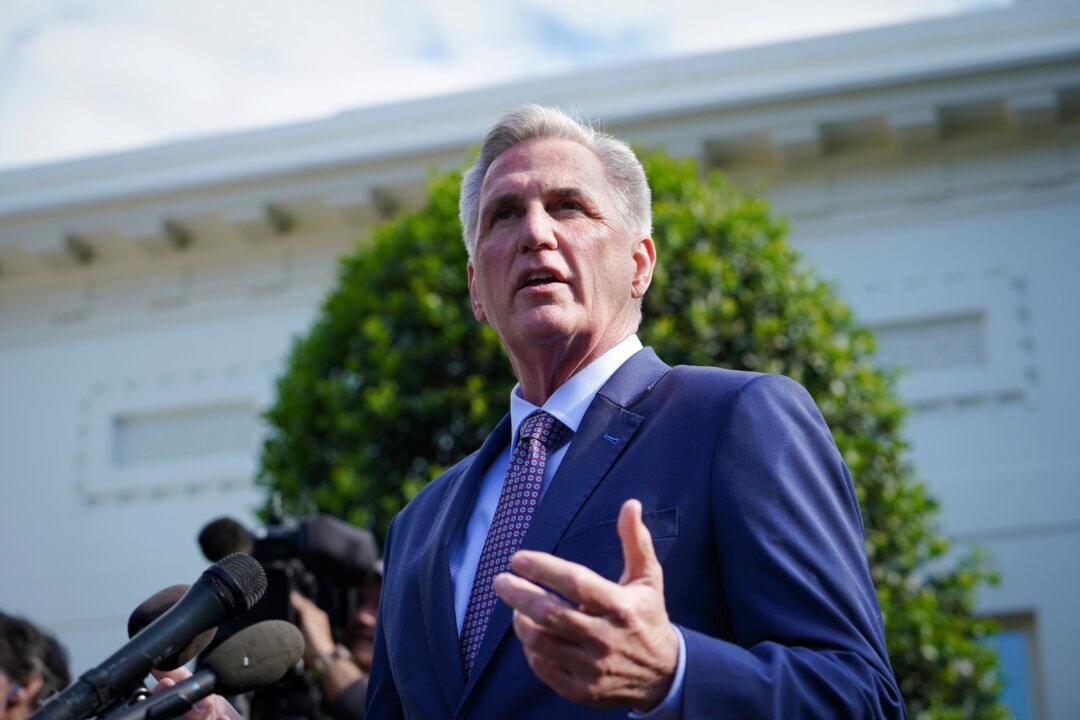As the debt ceiling standoff continues to grip Washington, House Speaker Kevin McCarthy (R-Calif.) said Monday that President Joe Biden might have a “secret plan” to avoid a debt default and, if so, the Republican lawmaker is all for it.
McCarthy made the remarks during a press conference on Capitol Hill while responding to a question about Republican demands for spending cuts in exchange for agreeing to lift the $31.4 trillion debt cap.





